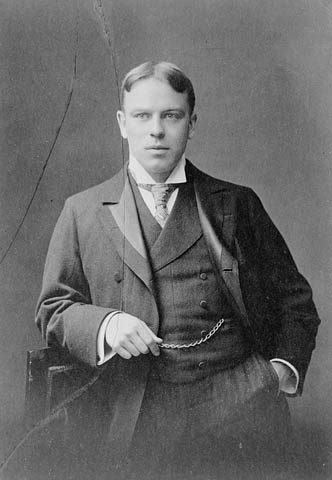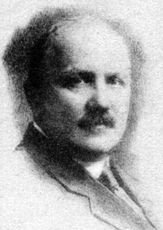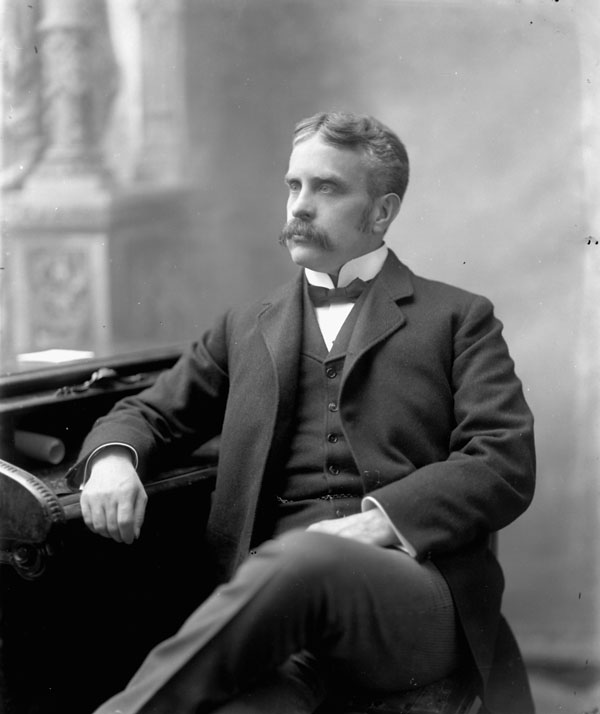|
Edwards V Canada (AG)
''Edwards v Canada (AG)''also known as the ''Persons Case'' (french: l'Affaire « personne »)is a famous Canadian constitutional case that decided in 1929 that women were eligible to sit in the Senate of Canada. The legal case was put forward by the Government of Canada on the lobbying of a group of women known as the Famous Five: Henrietta Edwards, Nellie McClung, Louise McKinney, Emily Murphy and Irene Parlby. The case began as a reference case by the federal Cabinet directly to the Supreme Court of Canada, which ruled that women were not "qualified persons" and thus ineligible to sit in the Senate. The five women then appealed to the Judicial Committee of the Imperial Privy Council in London, at that time the court of last resort for Canada within the British Empire and Commonwealth. The Judicial Committee overturned the Supreme Court's decision. (The case name lists Edwards as the lead appellant, as her name came first alphabtically.) The ''Persons Case'' was a landmar ... [...More Info...] [...Related Items...] OR: [Wikipedia] [Google] [Baidu] |
Judicial Committee Of The Privy Council
The Judicial Committee of the Privy Council (JCPC) is the highest court of appeal for the Crown Dependencies, the British Overseas Territories, some Commonwealth countries and a few institutions in the United Kingdom. Established on 14 August 1833 to hear appeals formerly heard by the King-in-Council, the Privy Council formerly acted as the court of last resort for the entire British Empire, other than for the United Kingdom itself.P. A. Howell, ''The Judicial Committee of the Privy Council, 1833–1876: Its Origins, Structure, and Development'', Cambridge, UK: Cambridge University Press, 1979 Formally a statutory committee of His Majesty's Most Honourable Privy Council, the Judicial Committee consists of senior judges who are Privy Councillors; they are predominantly Justices of the Supreme Court of the United Kingdom and senior judges from the Commonwealth of Nations. Although it is often simply referred to as the 'Privy Council', the Judicial Committee is only one cons ... [...More Info...] [...Related Items...] OR: [Wikipedia] [Google] [Baidu] |
Court Of Last Resort
A supreme court is the highest court within the hierarchy of courts in most legal jurisdictions. Other descriptions for such courts include court of last resort, apex court, and high (or final) court of appeal. Broadly speaking, the decisions of a supreme court are not subject to further review by any other court. Supreme courts typically function primarily as appellate courts, hearing appeals from decisions of lower trial courts, or from intermediate-level appellate courts. However, not all highest courts are named as such. Civil law states tend not to have a single highest court. Additionally, the highest court in some jurisdictions is not named the "Supreme Court", for example, the High Court of Australia. On the other hand, in some places the court named the "Supreme Court" is not in fact the highest court; examples include the New York Supreme Court, the supreme courts of several Canadian provinces/territories, and the former Supreme Court of Judicature of England and W ... [...More Info...] [...Related Items...] OR: [Wikipedia] [Google] [Baidu] |
Constitution Act, 1867
The ''Constitution Act, 1867'' (french: Loi constitutionnelle de 1867),''The Constitution Act, 1867'', 30 & 31 Victoria (U.K.), c. 3, http://canlii.ca/t/ldsw retrieved on 2019-03-14. originally enacted as the ''British North America Act, 1867'' (BNA Act), is a major part of the Constitution of Canada. The act created a federation, federal dominion and defines much of the operation of the Government of Canada, including its Canadian federalism, federal structure, the House of Commons of Canada, House of Commons, the Senate of Canada, Senate, the justice system, and the taxation system. In 1982, with the patriation of the Constitution, the British North America Acts which were originally enacted by the Parliament of the United Kingdom, British Parliament, including this Act, were renamed. Although, the acts are still known by their original names in records of the United Kingdom. Amendments were also made at this time: section 92A was added, giving provinces greater control ove ... [...More Info...] [...Related Items...] OR: [Wikipedia] [Google] [Baidu] |
Federal Cabinet Of Canada
The Cabinet of Canada (french: Cabinet du Canada) is a body of ministers of the Crown that, along with the Canadian monarch, and within the tenets of the Westminster system, forms the government of Canada. Chaired by the prime minister, the Cabinet is a committee of the King's Privy Council for Canada and the senior echelon of the Ministry, the membership of the Cabinet and ministry often being co-terminal; there were no members of the latter who were not also members of the former. For practical reasons, the Cabinet is informally referred to either in relation to the prime minister in charge of it or the number of ministries since Confederation. The current cabinet is the Cabinet of Justin Trudeau, which is part of the 29th Ministry. The interchangeable use of the terms ''cabinet'' and '' ministry'' is a subtle inaccuracy that can cause confusion. Composition King-in-Council The Government of Canada, formally referred to as ''His Majesty's Government'', is defined by the ... [...More Info...] [...Related Items...] OR: [Wikipedia] [Google] [Baidu] |
William Lyon Mackenzie King
William Lyon Mackenzie King (December 17, 1874 – July 22, 1950) was a Canadian statesman and politician who served as the tenth prime minister of Canada for three non-consecutive terms from 1921 to 1926, 1926 to 1930, and 1935 to 1948. A Liberal, he was the dominant politician in Canada from the early 1920s to the late 1940s. King is best known for his leadership of Canada throughout the Great Depression and the Second World War. He played a major role in laying the foundations of the Canadian welfare state and established Canada's international reputation as a middle power fully committed to world order. With a total of 21 years and 154 days in office, he remains the longest-serving prime minister in Canadian history. Born in Berlin, Ontario (now Kitchener), King studied law and political economy in the 1890s and became concerned with issues of social welfare. He later obtained a PhD – the only Canadian prime minister to have done so. In 1900, he became deputy minister ... [...More Info...] [...Related Items...] OR: [Wikipedia] [Google] [Baidu] |
Ernest Lapointe
Ernest Lapointe (October 6, 1876 – November 26, 1941) was a Canadian lawyer and politician. A member of Parliament from Quebec City, he was a senior minister in the government of Prime Minister W. L. Mackenzie King, playing an important role on issues relating to legal affairs, Quebec and French-speaking Canada. Education, early career Lapointe earned his law degree from Laval University. He was called to the bar in 1898 and practised law in Rivière-du-Loup and Quebec City. Enters politics Lapointe was elected by acclamation to the House of Commons of Canada for the riding of Kamouraska as a Liberal through a by-election on February 12, 1904. Lapointe was later re-elected in the 1904, 1908, 1911, and 1917 federal elections. Lapointe resigned his seat in 1919 and successfully ran in the Quebec East seat vacated by former Prime Minister Wilfrid Laurier, who died. King's cabinet minister and Quebec lieutenant In 1921, Prime Minister William Lyon Mackenzie King a ... [...More Info...] [...Related Items...] OR: [Wikipedia] [Google] [Baidu] |
Reference Question
In Canadian law, a reference question or reference case (formally called abstract review) is a submission by the federal or a provincial government to the courts asking for an advisory opinion on a major legal issue. Typically the question concerns the constitutionality of legislation. Constitutional and statutory authority Reference jurisdiction of the Supreme Court of Canada The ''Constitution Act, 1867'', gives the federal Parliament the power to create a "General Court of Appeal for Canada", but does not define the jurisdiction of the Court. When Parliament created the Supreme Court of Canada in 1875, it gave the federal Cabinet the power to refer questions to the Supreme Court for the Court's opinion. That provision has been carried forward and is now found in the current ''Supreme Court Act''. Under that provision, the federal Cabinet may submit a question to the Supreme Court of Canada by means of an order-in-council. Once the questions have been submitted to the Cour ... [...More Info...] [...Related Items...] OR: [Wikipedia] [Google] [Baidu] |
Henrietta Muir Edwards
Henrietta Muir Edwards (18 December 184910 November 1931) was a Canadian women's rights activist and reformer. She was the eldest of "The Famous Five", along with Emily Murphy, Nellie McClung, Louise McKinney and Irene Parlby, who fought to have women recognized as "persons" under the law, and for the woman's right to vote in elections. She was born Henrietta Louise Muir in Montreal as well as lived in Montreal. She grew up in an upper-middle-class family that valued culture and religion. Edwards became active in many religious organisations, where she grew disenchanted with old traditions where the exclusion of women was acceptable. Biography Edwards was born on 18 December 1849. As a young woman, Edwards and her sister Amélia founded a Working Girls’ Association in Montreal in 1875 to provide meals, reading rooms and study classes. This would become one of Canada's first YWCAs. They also published a periodical, The Working Women of Canada, which helped to bring working con ... [...More Info...] [...Related Items...] OR: [Wikipedia] [Google] [Baidu] |
Robert Borden
Sir Robert Laird Borden (June 26, 1854 – June 10, 1937) was a Canadian lawyer and politician who served as the eighth prime minister of Canada from 1911 to 1920. He is best known for his leadership of Canada during World War I. Borden was born in Grand-Pré, Nova Scotia. He worked as a schoolteacher for a period and then served his articles of clerkship at a Halifax law firm. He was called to the bar in 1878, and soon became one of Nova Scotia's most prominent barristers. Borden was elected to the House of Commons in the 1896 federal election, representing the Conservative Party. He replaced Charles Tupper as party leader in 1901, but was defeated in two federal elections by Liberal Prime Minister Wilfrid Laurier in 1904 and 1908. However, in the 1911 federal election, Borden led the Conservatives to victory after he claimed that the Liberals' proposed trade reciprocity treaty with the United States would lead to the US influencing Canadian identity and weaken t ... [...More Info...] [...Related Items...] OR: [Wikipedia] [Google] [Baidu] |
Supreme Court Of Alberta
The Court of King's Bench of Alberta (abbreviated in citations as ABKB or Alta. K.B.) is the superior court of the Canadian province of Alberta. Until 2022, it was named Court of Queen's Bench of Alberta. The Court of Queen's Bench in Calgary was relocated to the Calgary Courts Centre in 2007. The Court of King's Bench has been located at the Law Courts building in Edmonton since the 1970s. History The court originates from the old Supreme Court of the Northwest Territories. Two years after Alberta became a province in 1905, the court was reorganized as the Supreme Court of Alberta and several lower district courts possessing a more limited jurisdiction. In 1921, the Supreme Court was reorganized to have an independent trial division (Supreme Court of Alberta Trial Division), and an independent appellate division (Supreme Court of Alberta Appellate Division), the precursor to the Court of Appeal of Alberta. On June 30, 1979, the Supreme Court Trial Division was renamed as "Court ... [...More Info...] [...Related Items...] OR: [Wikipedia] [Google] [Baidu] |
British North America Acts
The British North America Acts 1867–1975 are a series of Acts of Parliament that were at the core of the constitution of Canada. Most were enacted by the Parliament of the United Kingdom and some by the Parliament of Canada. In Canada, some of the acts were repealed in Canada by the Constitution Act, 1982. The rest were renamed the Constitution Acts and amended, with those changes only having effect in Canada. The Canadian versions of the Constitution Acts make up the Constitution of Canada, and can only be amended in Canada. The British versions of the acts which remain in force in Britain are ordinary British statutes. They can be amended by the British Parliament, but those amendments would not have any effect in Canada. They retain their original names and do not include any amendments made in Canada since 1982. The term "British North America" (BNA) refers to the British colonies in North America, after 1783. Constitutional changes Canada dates its history as a coun ... [...More Info...] [...Related Items...] OR: [Wikipedia] [Google] [Baidu] |
Charles Wilson Cross
Charles Wilson Cross (November 30, 1872 – June 2, 1928) was a Canadian politician who served in the Legislative Assembly of Alberta and the House of Commons of Canada. He was also the first Attorney-General of Alberta. Born in Ontario, he studied law at Osgoode Hall Law School before coming west to practise in Edmonton. He became active with the Liberal Party of Canada, and when Alberta was created in 1905 he was chosen by Premier Alexander Cameron Rutherford to be its first Attorney-General. Implicated in the Alberta and Great Waterways Railway scandal, he resigned in 1910 along with the rest of Rutherford's government. As a backbencher, he became the leader of Liberals opposed to the government of Rutherford's successor, Arthur Sifton, until Sifton re-appointed him Attorney-General in 1912. Cross served in this capacity under Sifton and his successor Charles Stewart until 1918, when Stewart fired him after receiving no response to his request for Cross's resignation. C ... [...More Info...] [...Related Items...] OR: [Wikipedia] [Google] [Baidu] |








